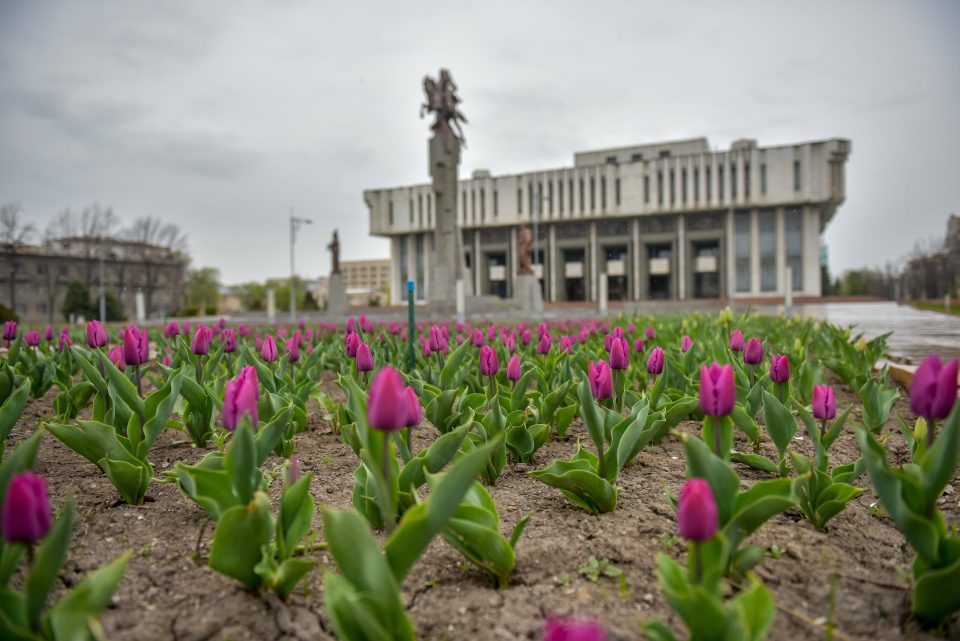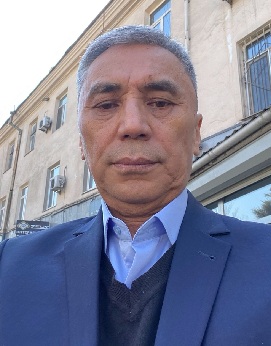Political instability brought about by the first political revolution

Asia Journalist Association (AJA), founded in 2004, is an international journalist association that operates under the motto of “One Line of Truth through Sweat and Blood” with the goal of fair reporting, protecting freedom of the press, and developing journalism. To commemorate its 20th anniversary, AJA is sharing special feature articles that look back on the association’s 20-year history and key events within the last 20 years in AJA member countries. THE AsiaN, an outlet based on the AJA network, is reporting 10 special articles marking the 20th anniversary of the founding of AJA every Tuesday and Friday starting April 15, 2025. – Editor’s note
Contributors for AJA Central Asia : Kuban Abdymen (Kyrgyzstan), Alpomish Mashrabkhonov (Uzbekistan), Abdul Manan (Indonesia), Khatuna Chapichadze (Georgia)

Tulip Revolution in 2005
As a result of protests against the transfer of Kyrgyzstan’s disputed part of lands to China, demonstrators from southern Kyrgyzstan roused the population of the country, which resulted in the 2005 revolution called the Tulip Revolution. President Askar Akayev was forced to flee to Russia and later signed a resignation. One of the leaders of the revolution was elected as a new President – Kurmanbek Bakiyev.
This event marked Kyrgyzstan’s first political revolution and initiated a period of political instability for two decades.
April Revolution in 2010
President Bakiyev’s inconsistent policies led to dissatisfaction from both Russia and the United States. Russia felt deceived when the U.S.-led Anti-Terrorist Forces military airbase in Kyrgyzstan was merely renamed, rather than suspended, as Bakiyev had promised, while Kyrgyzstan continued to receive significant economic support from Russia. Meanwhile, the United States was displeased with Kyrgyzstan’s decision to align with Russia and finally in 2014 withdraw the U.S. airbase from the country.
Later, the abolition of preferences by Russia – such as supplying petroleum products without excise taxes – and the introduction of charges for every cellphone calls sparked mass protests, with tens of thousands of demonstrators flooding the streets, demanding the president’s resignation and occupying the capital’s central square.
Widespread protests and violence fueled by corruption and economic challenged culminated in the overthrow of President Kurmanbek Bakiyev.
Executive power transitioned to a provisional government and set the stage for constitutional reforms.
Ethnic Clashes in Southern Kyrgyzstan 2010
After President Bakiyev’s escape the central government lost control of the country, which led to violent conflicts between Kyrgyz and Uzbek communities in southern parts of the country. Leaders of the Uzbek diaspora demanded autonomy and took up arms against authorities and other locals. This led to the investigation of the events by a special OSCE commission headed by Kimmo Kiljunen, and its resolution was not recognized as objective among Kyrgyz society, and caused widespread discontent in the majority of population.
These events resulted in substantial loss of lives, displacement, and long-term ethnic tensions.
2020 Political Crisis and Protests
Following the 2020 parliamentary elections, in which the authorities openly engaged in bribery and fraud, opposition groups took to the streets in protest. After a night of intense confrontation, President Jeenbekov’s power crumbled, and he resigned after negotiations with opposition leaders Sadyrov Japarov and Kamchybek Tashiev.
The protests and subsequent political changes marked a significant shift in power and led to constitutional amendments that strengthened the presidential system.
Return to a Presidential System in 2021
Newly elected President Japarov held another referendum, the outcome of which redefined the political system, officially establishing Kyrgyzstan as a strong presidential country. All power was consolidated in the hands of the president, who became solely responsible for the country’s affairs.
President Japarov appointed his close ally, Kamchybek Tashiev, as head of the State Security Service, which is leading a tough campaign against corruption and organized crime, targeting both criminal figures and government corruption schemes.
(To be continued)
Related Articles : Asia Journalist Association 20th anniversary special feature articles – THE AsiaN
AJA born of a meeting of minds – THE AsiaN
AJA and My Seven Sojourns in Korea – THE AsiaN
“A bridge connecting Asia and the world, AJA’s journey is ongoing” – THE AsiaN
AJA: An Open Community Beyond Borders and Cultures – THE AsiaN
More freedom and movements towards greater democracy in Malaysia – THE AsiaN
Cambodia Hosts First-Ever Regional Games in History – THE AsiaN
The rise and fall of fighting corruption in Indonesia – THE AsiaN
Political instability brought about by the first political revolution – THE AsiaN
Uzbek President delivers historic speech in native language at the 2023 UN General Assembly – THE AsiaN
Georgia in its existential struggles for the last twenty years – THE AsiaN




